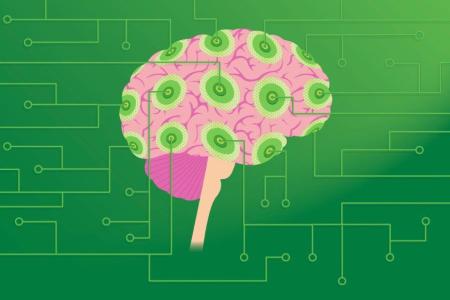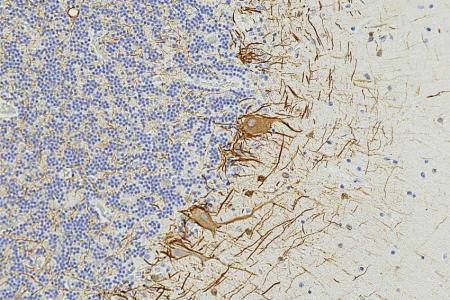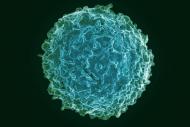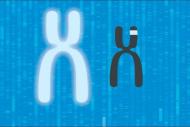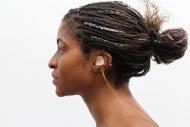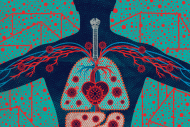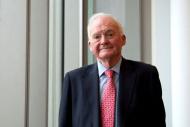Results Lay Groundwork for New, More Targeted Immune TherapiesNew UCSF research sheds light on how immune system B cells that infiltrate the central nervous system may drive multiple sclerosis.
Study Reveals the Second X Chromosome Confers ProtectionUCSF scientists now have evidence from research that women with Alzheimer’s live longer than men with the disease because they have genetic protection from the ravages of the disease.
Potential General-Purpose Learning Aid Could Have Many Medical and Consumer ApplicationsNew research by neuroscientists at the University of Pittsburgh and UC San Francisco revealed that a simple, earbud-like device developed at UCSF that imperceptibly stimulates a key nerve leading to the brain could significantly improve the wearer’s ability to learn the sounds of a new language.
A newly completed phase 3, multicenter clinical trial has found that an immune-modulating drug can silence inflammatory disease activity in a large majority of patients with relapsing multiple sclerosis (RMS) – the most common form of the illness, in which symptoms wax and wane.
U.S. News & World Report Lists UCSF in 15 Adult Specialties and Best in West in 4UCSF Medical Center has been recognized as one of the nation’s finest hospitals in the U.S. News & World Report 2020-2021 Best Hospitals survey, ranking among the top 10 hospitals nationwide for the 22nd year.
We were wrong.UCSF researchers are taking a closer look at COVID-19’s dizzying array of symptoms to get at the disease’s root causes.
Vision, Hearing, Touch, Olfaction Linked to Cognition, UCSF Study ShowsSeniors who can identify smells like roses, turpentine, paint-thinner and lemons, and have retained their senses of hearing, vision and touch, may have half the risk of developing dementia as their peers with marked sensory decline, according to a new UCSF study.
Ramsay Oversaw UCSF’s Rise to Academic Prominence, Steered Progress at Institute for Neurodegenerative DiseasesDavid Ramsay, a former UCSF senior vice chancellor and president of the University of Maryland, Baltimore (UMB) who since 2010 had served as associate director of the UCSF Institute for Neurodegenerative Diseases (IND), died June 18, 2020, after a short illness. He was 81.
Targeting Immune Molecule That Triggers This Tunneling May Lead to Future Therapies for Memory DisordersA new study by UCSF researchers identified a surprising way that the brain’s immune cells help to form new memories.
Under a new agreement, Celgene will further invest in the RAN’s state-of-the-art antibody engineering program to expand target discovery from oncology and immunology to include neurology.


